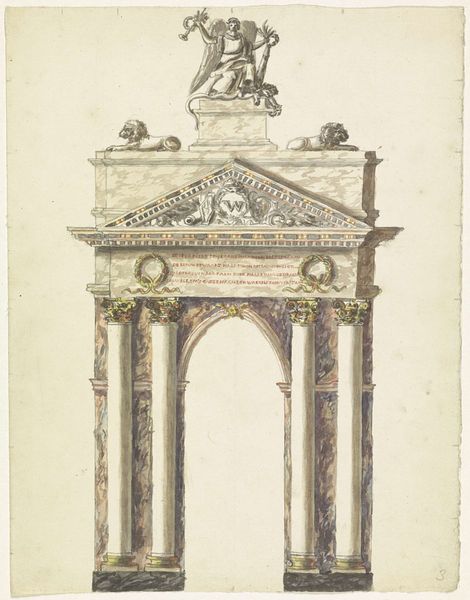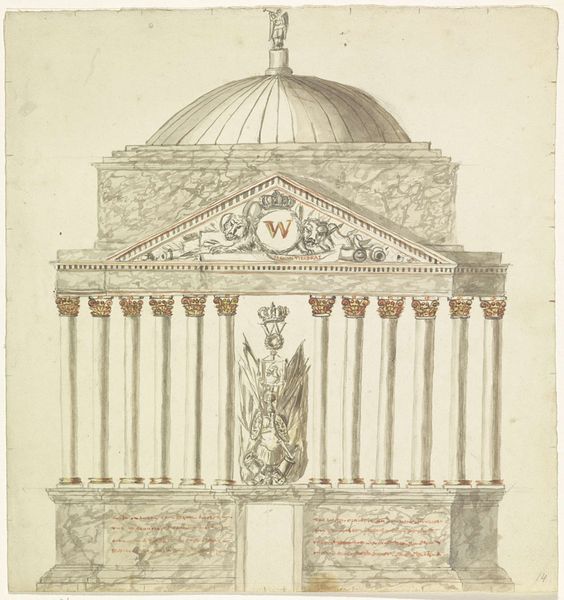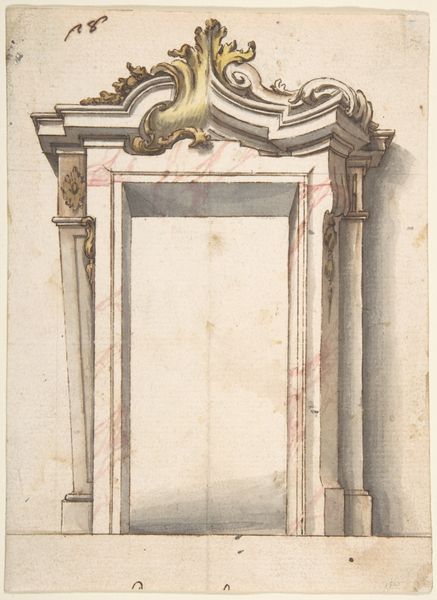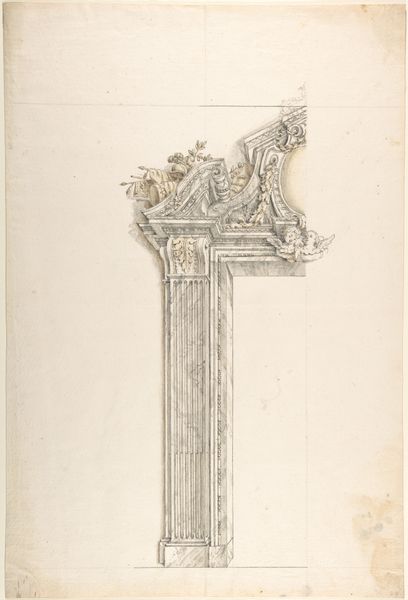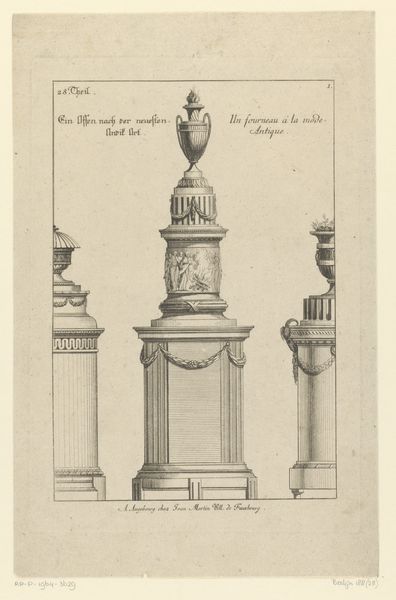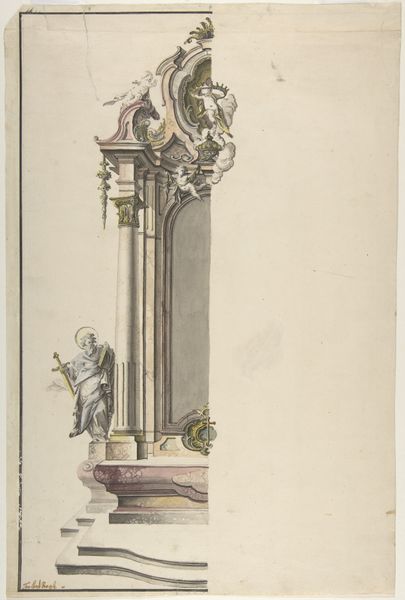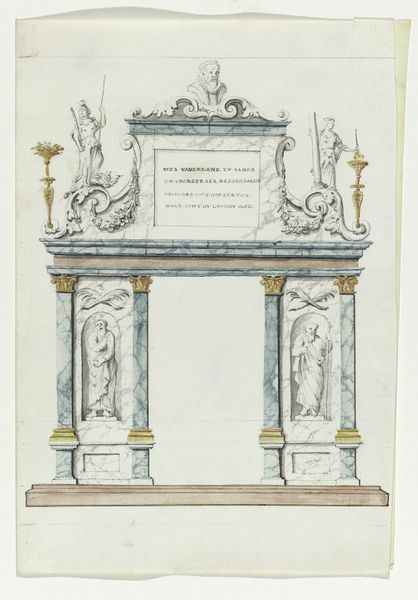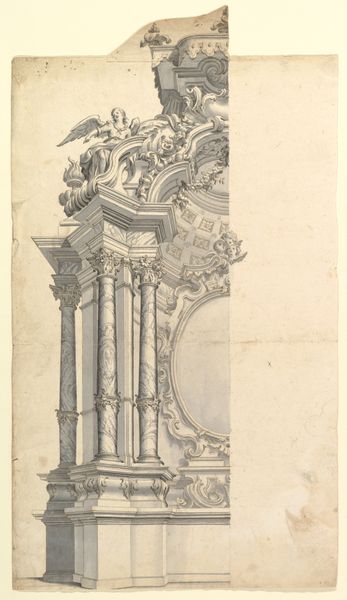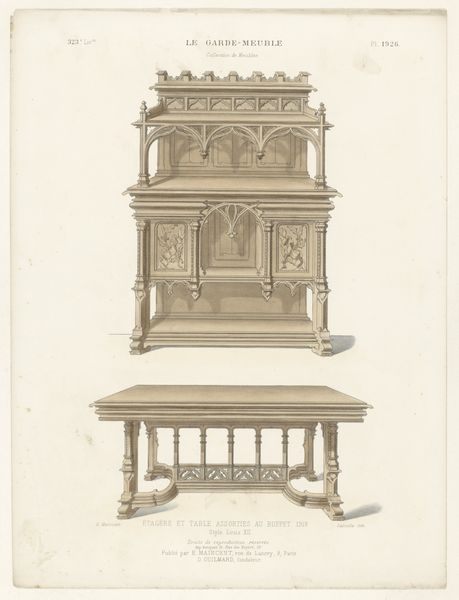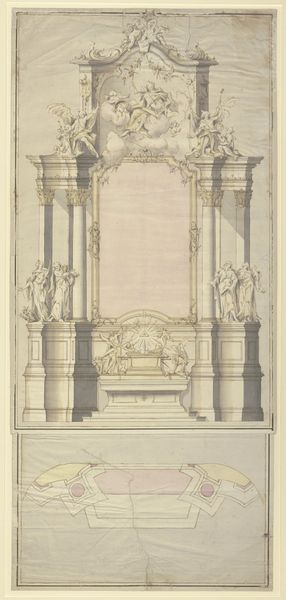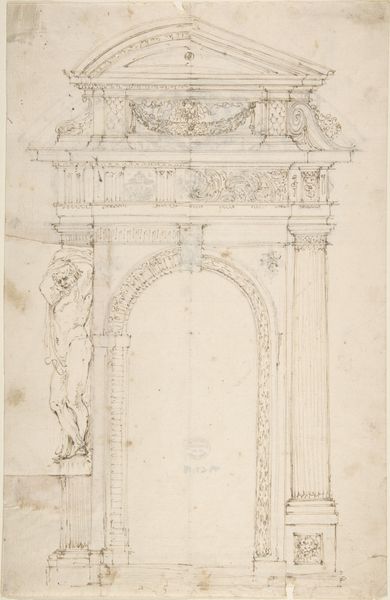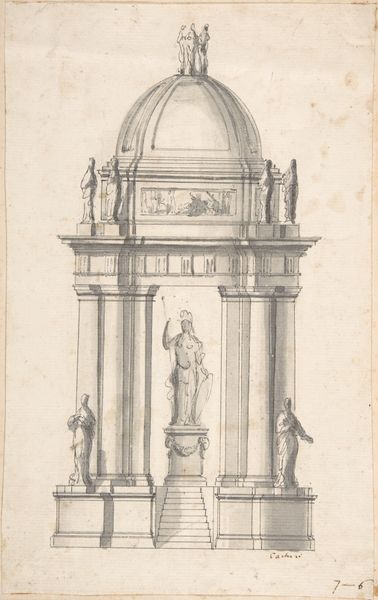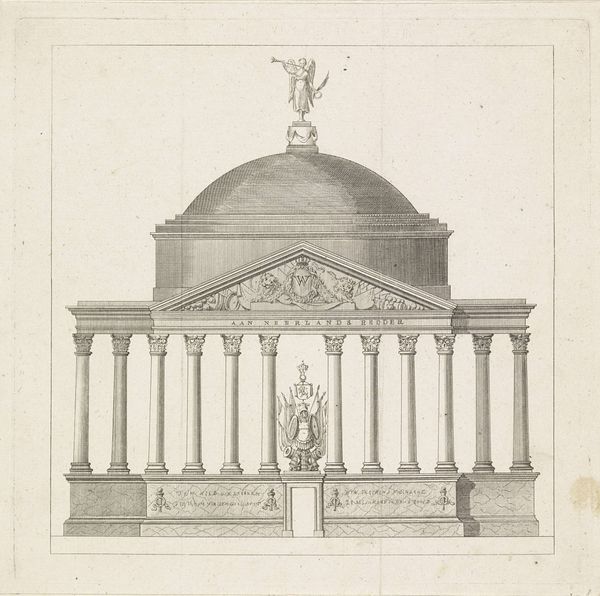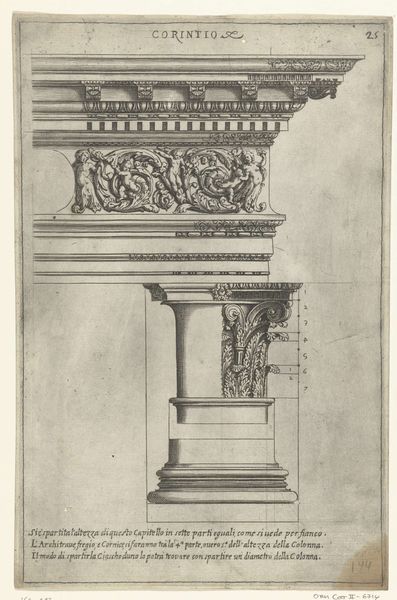
drawing, watercolor, architecture
#
drawing
#
neoclacissism
#
landscape
#
classical-realism
#
watercolor
#
romanticism
#
cityscape
#
watercolour illustration
#
watercolor
#
architecture
Dimensions: height 245 mm, width 194 mm
Copyright: Rijks Museum: Open Domain
Editor: This watercolor drawing, titled "Ereboog op de Herengracht bij de Leidsestraat, 1816," is an architectural study. I’m really struck by its austere monumentality despite the soft watercolor washes. What’s your interpretation? Curator: Well, beyond the aesthetic, consider what erecting such a temporary triumphal arch signified in 1816. This wasn’t simply about beauty; it was a constructed symbol, likely for a visiting dignitary after the Napoleonic era. Who was being celebrated, and what power structures were being visually reinforced? How does it fit into the broader landscape of Neoclassical aesthetics as a tool for establishing authority? Editor: So you're suggesting the arch is less about celebrating art and more about endorsing a particular authority? Curator: Exactly! Neoclassicism was often co-opted to lend visual weight to those in power. What kind of values does this idealized architecture represent? Who did it exclude, both literally and figuratively, from the "triumph" being portrayed? Look at the inscription; who is deemed worthy of memory? Editor: I hadn't considered the explicit power dynamics at play. Now it makes me question whose perspectives are validated. Curator: Precisely. Even seemingly innocuous architecture reflects deliberate decisions about societal values, and it's important to critically investigate the systems they supported and perpetuated. Editor: It’s eye-opening to think of even this seemingly straightforward image as an agent in broader sociopolitical contexts. Curator: Every artistic expression echoes in wider cultural narratives.
Comments
No comments
Be the first to comment and join the conversation on the ultimate creative platform.
